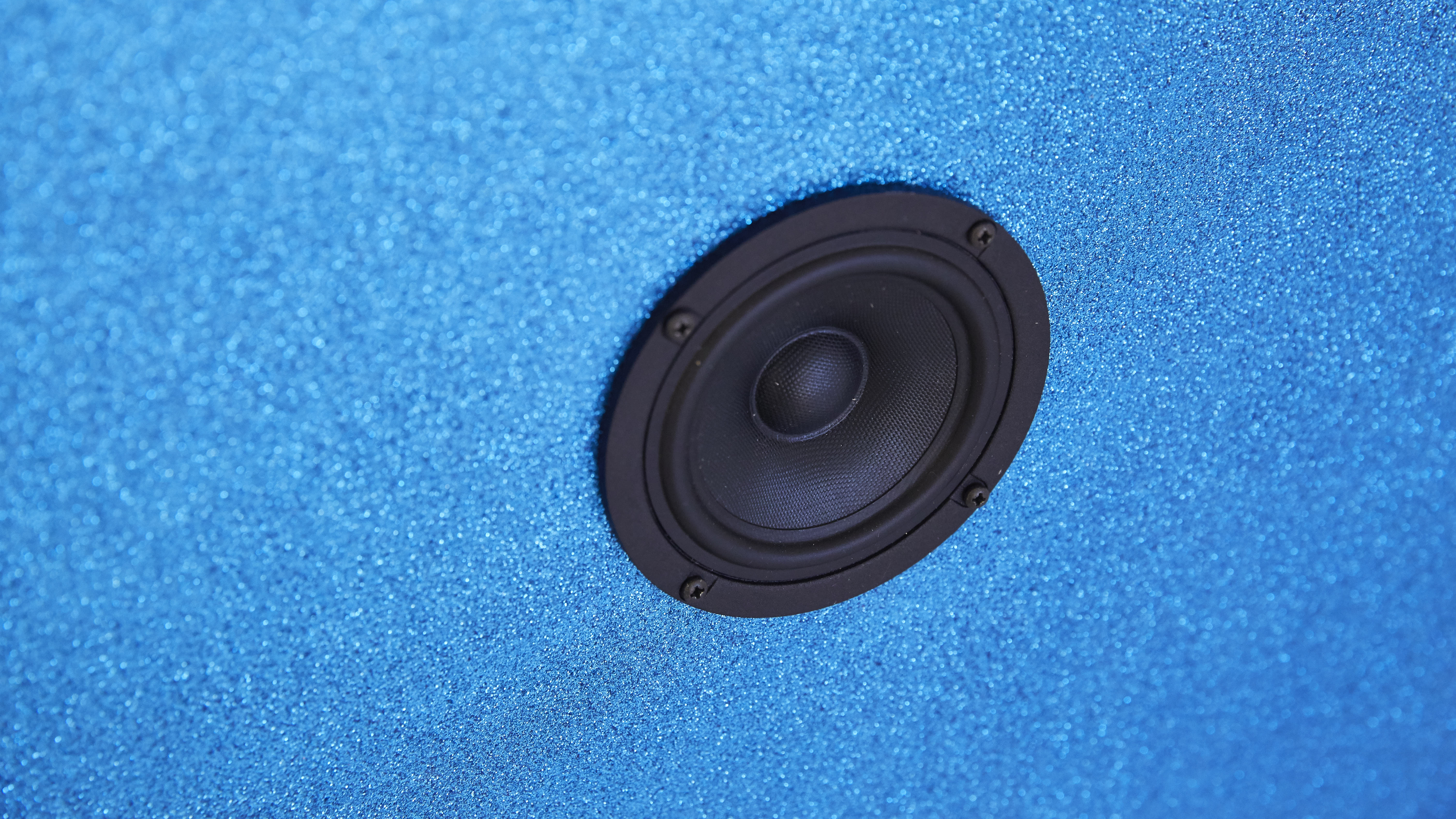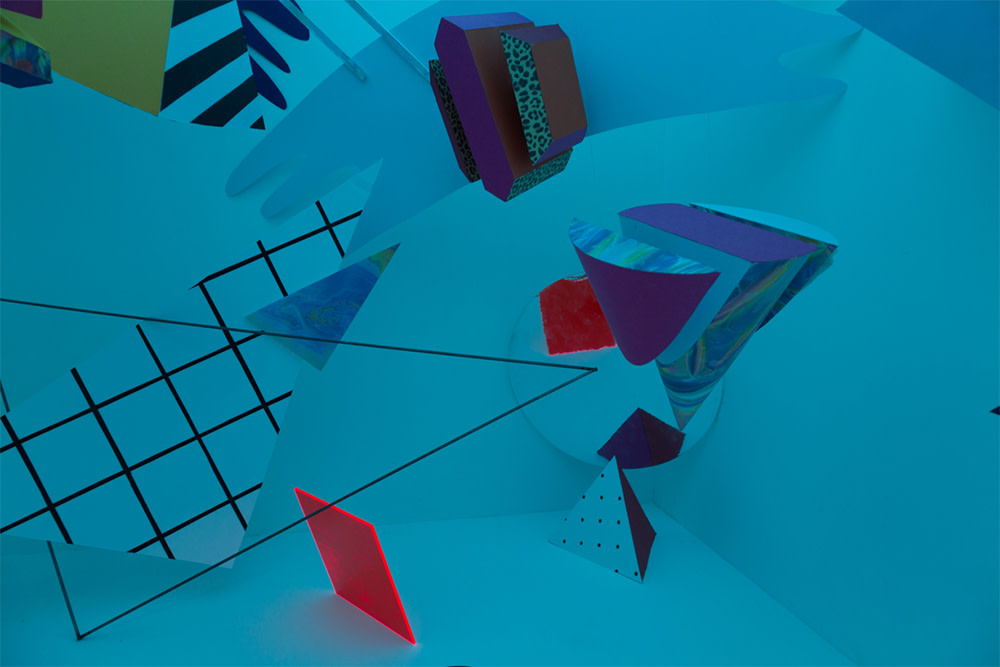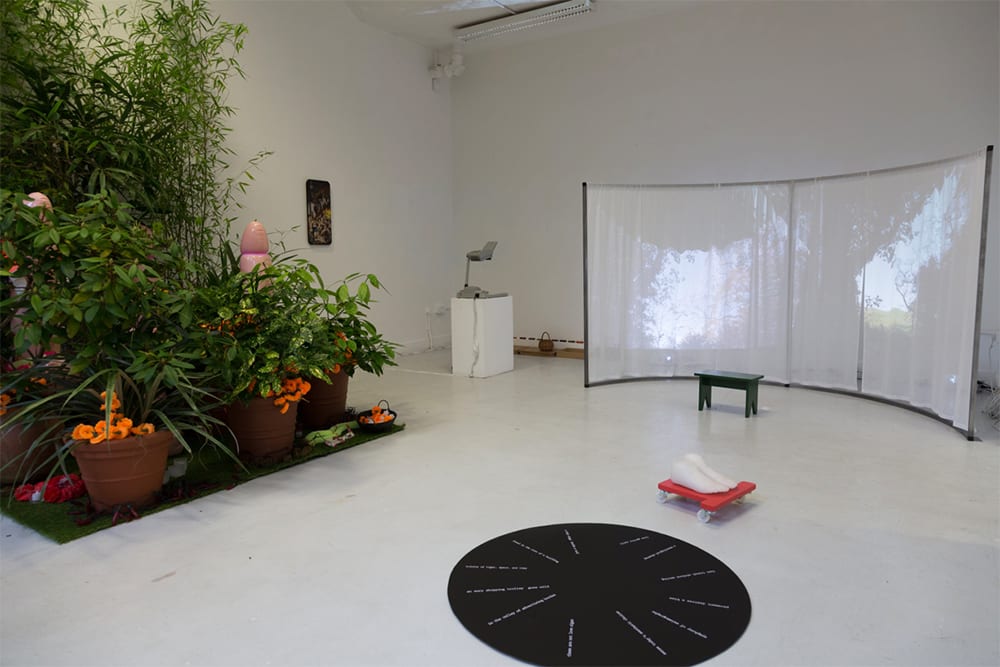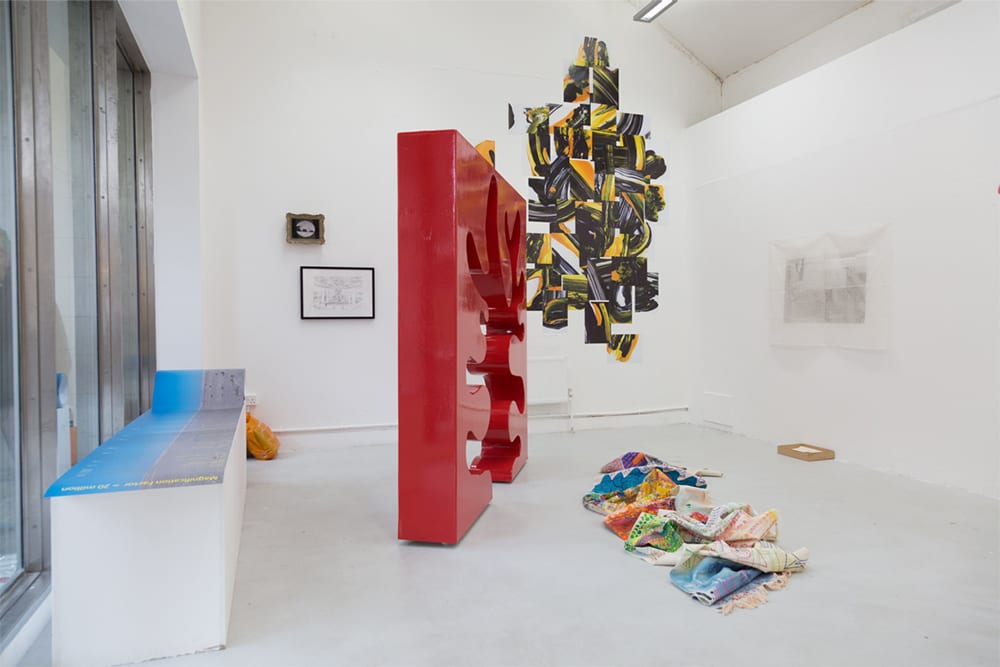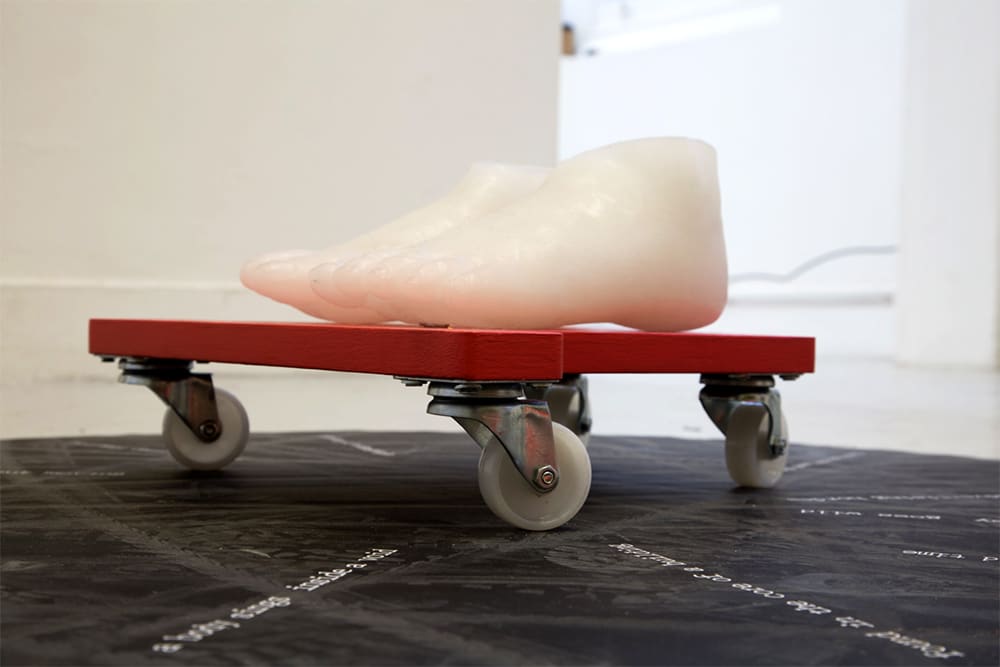Course units
Unit 1 - Building practice
This unit is an introduction to your course, the College and the University.
There’ll be a programme of artist talks, lectures and regular tutor group sessions. You’ll be introduced to ways in which theoretical material and research can be used in relation to art practice. You’ll take part in an exhibition and produce a piece of critical writing related to your practice. You’ll begin to develop an enquiry-based practice and consider the value of taking risks and experimentation.
Unit 2 - Public practice: development and realisation
In this unit you will develop your work further. You will produce a portfolio of work that can be used within a professional context or to apply for an MA.
There’ll be a series of workshops, tutorials and crits. You’ll document your work including how it becomes public, give a presentation and complete a piece of critical writing. You’ll make your work public externally and within the College.
